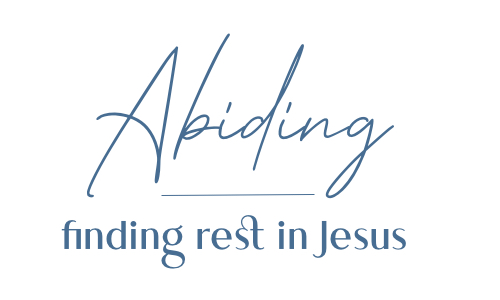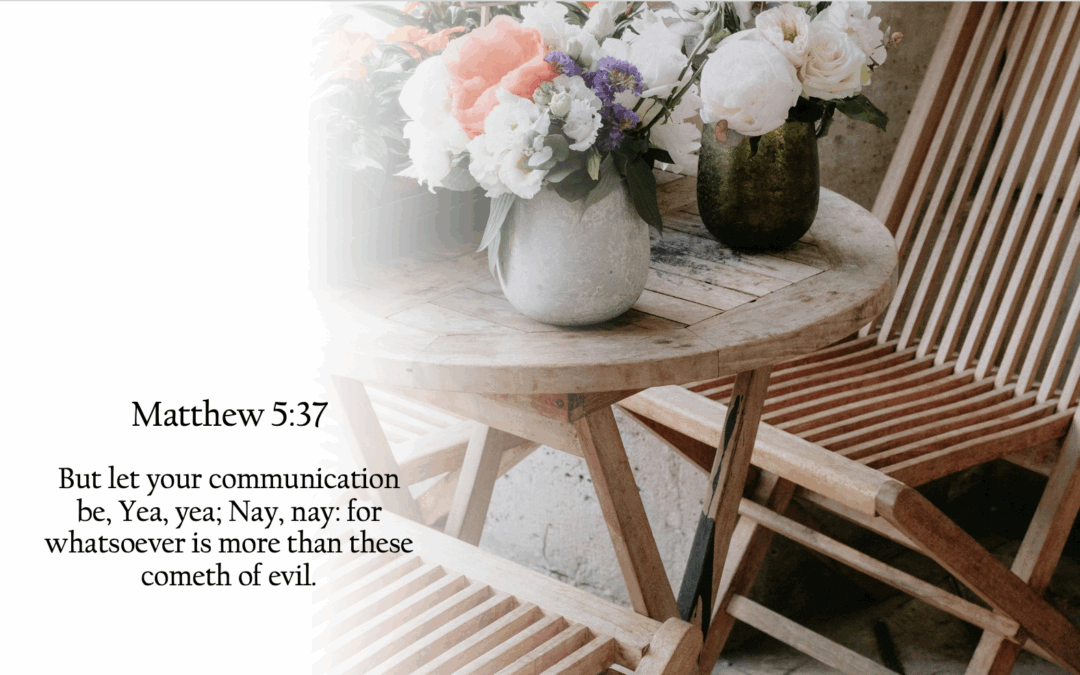What a pleasure hear devotional thoughts from Vicki Weimer this week! You can learn more about her on our contributors page.
“You can raise that baby on one word,” said the old North Carolina mountain man at church. As a struggling new mom, I wanted to know this magic word. “No,” he said. I stared at him, waiting for more. “The word is no,” he finished and sat down to hear the preaching. I confess that I don’t remember what the preacher said because all I could think about was what the strange mountain man had said.
Confused and a little miffed, honestly, I politely said thank you and goodbye like a good missionary before leaving the service. But what he had said stuck in my mind. It seemed vague and a little cruel, until I came across the words of Jesus again in His Sermon on the Mount to “let your communication be, Yea, yea; Nay, nay,” (Matthew 5:37).
Jesus said to let our yes be yes and our no be no. Earlier in His sermon, Jesus addressed the misunderstood tradition of His people, making promises using heaven or earth to provide verity to their oath. Instead, Jesus wanted them to say what they meant.
Today, He might have told us not to make “pinky promises” or “swear on a stack of Bibles” to prove our commitment. Our word, yes or no, should have depth and finality. “But above all things, my brethren, swear not, neither by heaven, neither by the earth, neither by any other oath: but let your yea be yea; and your nay, nay; lest ye fall into condemnation,” (James 5:12).
Just acknowledging the truth of the “yes means yes, and no means no” principle does not mean that we know how to practice it. I suggest using neither word unless we intend to stick with what we said. When our children misbehave or ask for something that they should not have, we should not throw out a quick “no,” then repeat “no” over and over, or cave to our child’s “Pleeeease!”
When a lady at church asks for a favor, we should not throw out a quick “yes,” knowing that we have too much to do. That thoughtless “yes” results in our dropping some other responsibility, doing a shoddy job on the favor, or even resentment at always being the one asked to help. If we cannot effectively use yes or no, we hurt ourselves and the people around us.
Though I used many more words than the mountain man’s “no” to rear my children, I learned from his well-worded advice. That principle helped me draw and enforce healthy boundaries with my children and in my ministry.
To say that I have mastered the art would be dishonest, but remembering its power helps me when life starts spinning out of control. When I find myself repeating or explaining my “no,” I need to reinforce that boundary. When I resent being too busy because of my “yes,” I might need to say “no.” Mean your yes and no.


Wow, thank you for this post! Sometimes we feel so rush to say “yes” to things. We don’t even stop to consider if it’s something we can actually do.
Saying “yes” too quickly has gotten me into trouble, for sure. It can be tough balancing good intentions with realistic abilities.